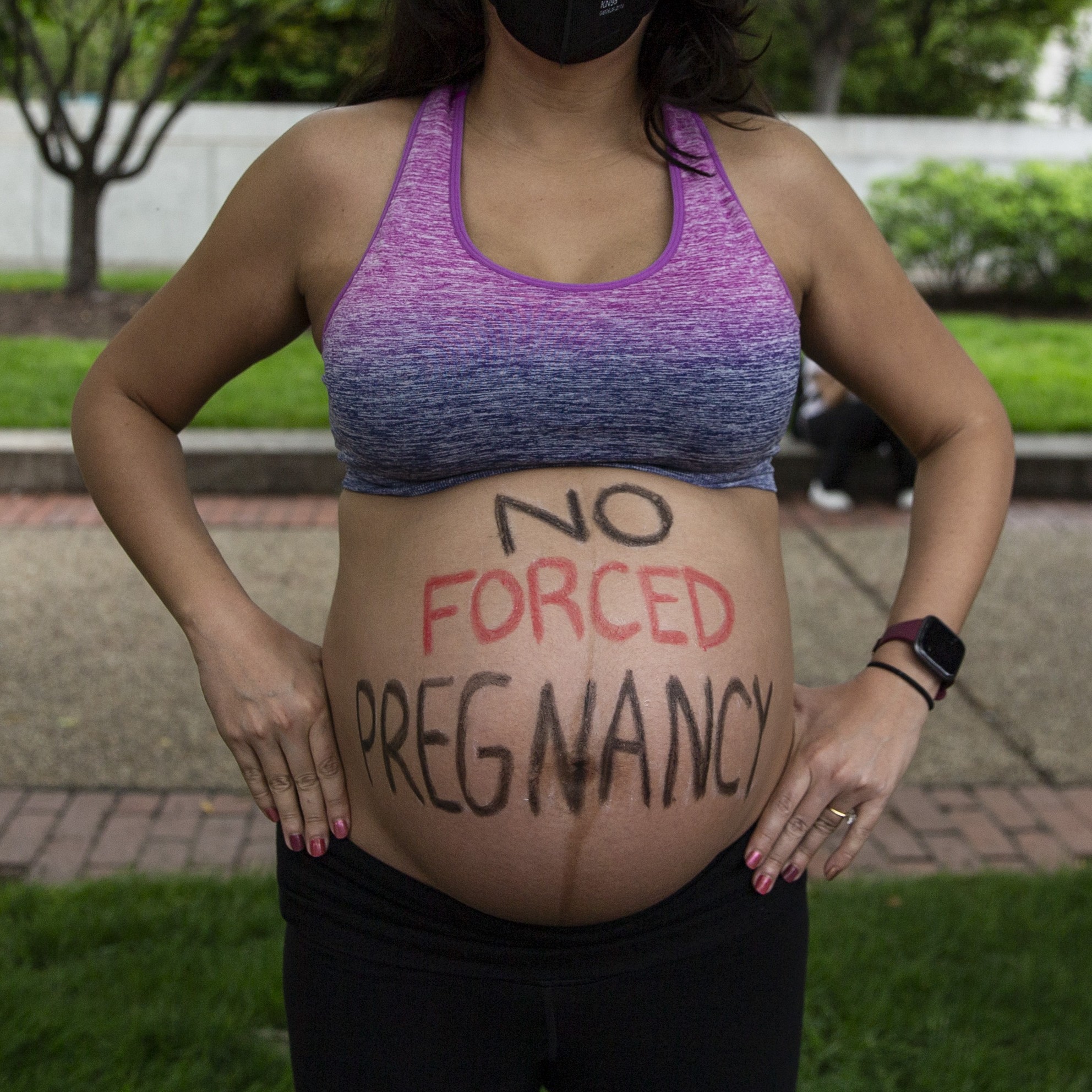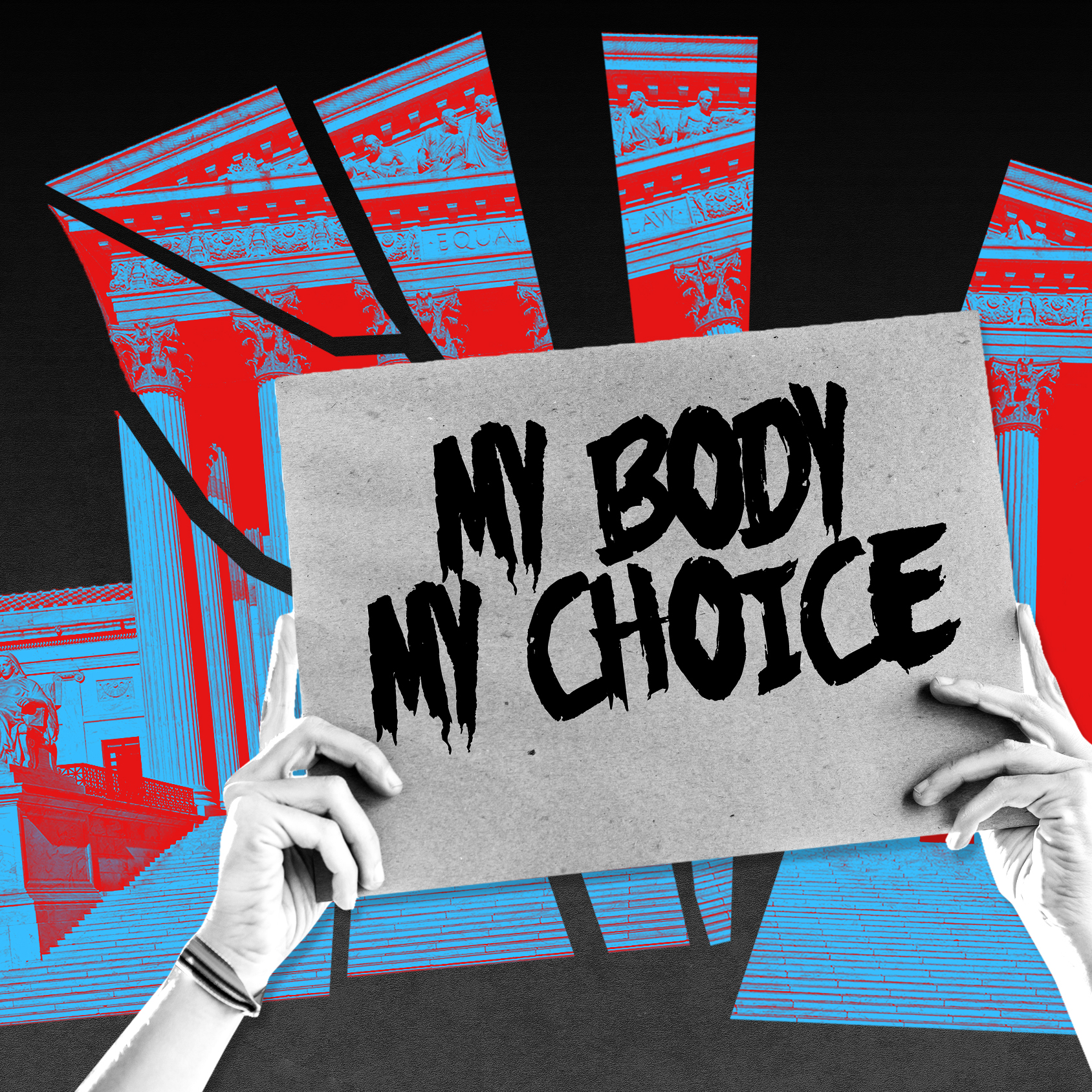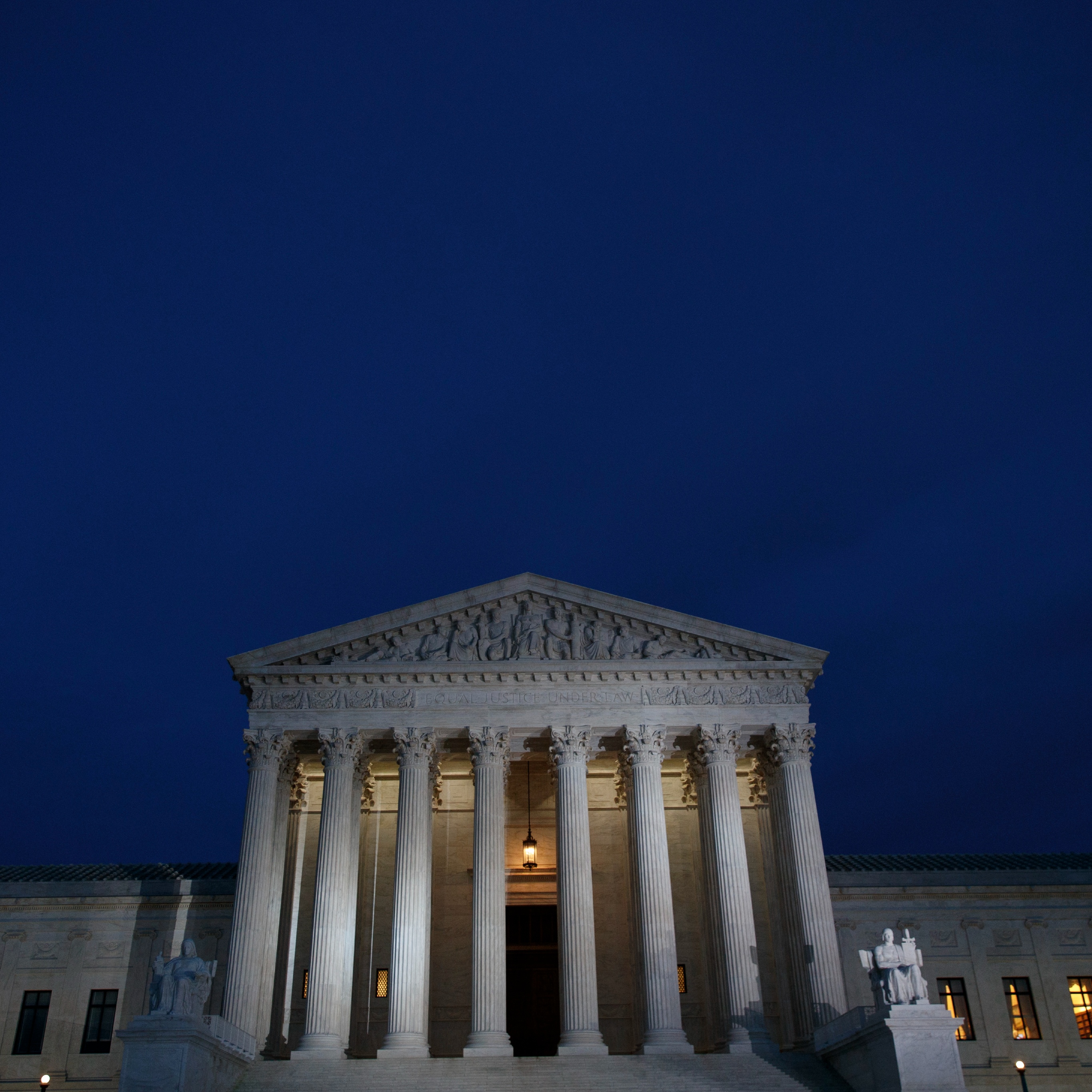An End to the Texas Abortion Law Could Be Closer Than You Think
The Center for Reproductive Rights is challenging the two aspects of the law that threaten the state's clinics the most.


For many women, their zip code doesn't just represent their mailing address. Those five numbers decide their proximity to nearest abortion provider. In the expansive state of Texas, a million women live over 150 miles from such facilities. What's more, the number of miles is about to grow substantially as the implementation of new legislative measures looms.
It has been over a year, but Texas' House Bill 2, better known to most as HB2, continues to inspire passionate feelings in people—both politicians and the public alike—since its inception. Pro-choice advocates across the country cried out against the legislation that lead to the closure of almost half of the state's forty abortion providing clinics. "These laws are politically motivated, and their goal is simply to end legal abortion services in the state of Texas," Stephanie Toti, the lead attorney in the case that's fighting HB2 in Texas courts, stated.
In court this week, The Center for Reproductive Rights is attacking the two provisions of HB2 that hurt women the most: the need for clinics to have admitting privileges at a nearby hospital and the mandate that abortion providers must meet the building requirements demanded of an ambulatory surgical center (ASC). The admitting privileges provision was put into place last September. The building requirements provision had a little more give. Clinics aren't required to meet the building requirements until September 2014. If the last provision of the law is put into place, all of the state's clinics will be forced to close, leaving the only abortion providers in the state to be the rare ASC. All of Texas' ASCs are located in the state's major metropolitan areas, meaning that women in more rural areas will find themselves hundreds of miles away from a safe provider.
"It leaves thousands of women without meaningful access to abortion services," Toti says. "And that's devastating."
The suit was filed this past March after months of research and preparation, Toti says. The trial is on an expedited schedule in the hopes that a ruling that would nullify the need for the ASC building requirements. If this measure is struck down, the state's remaining clinics will stay operating.
Countless doctors and medical experts have testified that there's no medically sound need for admitting privileges. The American Medical Association (AMA) and the American Congress of Obstetricians both have stated their opposition to the extreme measures. Extreme, because the demand for admitting privileges is forcing clinics all over Texas to close their doors. In some regions of the massive state, there is just one abortion-performing clinic—or in dire cases, sometimes no abortion providers at all. If the building requirements are allowed to continue as planned in September, the area west or south of San Antonio will be an abortion clinic desert.
The Center for Reproductive Rights is hitting HB2 back with two lawsuits that attack these two provisions in particular, played out in courts this week. While they're looking to stop the building requirements mandate throughout before it takes effect, plaintiffs are only looking to knock down the already-in-place admitting privileges provision in select cases.
Stay In The Know
Get exclusive access to fashion and beauty trends, hot-off-the-press celebrity news, and more.
There are two clinics in particular that The Center for Reproductive Rights is hoping to protect from HB2's admitting privileges demand. One is located in the Rio Grande Valley, perhaps Texas' most starved region when it comes to access to reproductive health care. The valley was left without a single operating abortion clinic after HB2 shut down Whole Woman's Health in McAllen, Texas. The other is located in El Paso, Texas, which was the latest remaining clinic in the state's entire eastern half. The loss of these two clinics meant that there is a drought of abortion care spanning hundreds of miles. "There just are no other points of access in those areas," Toti says. If these two clinics cannot reopen, then thousands of women will be over 250 miles away from the nearest abortion provider, and for many, that distance is much longer.
Distance isn't the only issue woman in the Rio Grande Valley and western Texas face. Most often, Toti says, the areas that are furthest from abortion providers are hit the hardest in elsewhere: many of the women are living in poverty or without health insurance. "For those women, it's going to be essentially impossible to access legal abortion care once that law takes effect," Toti says.
The state's expert witnesses, a Dallas OB-GYN and a Virginia physician, claimed that admitting privileges further ensure patient safety. However, Toti says that these witnesses lacked credibility, and spoke generally about the topic of admitting privileges, rather than speaking off of extensive research. One of the state's witnesses had even been called out by a judge in Alabama for dishonesty in the past, she says. The testimony of the state's witnesses was just another layer of evidence that support the plaintiffs's cause: That these aspects of HB2 will pose substantial obstacles on the women of Texas seeking abortion care, Toti says.
"The weight of the evidence clearly came down on the side of the plaintiffs who are challenging this law," Toti says.
If recent events are any indication, there's reason to be optimistic. Similar laws to HB2 were struck down in Mississippi and Alabama in the past few weeks, which gives Toti hope that Texan judges will overturn their own laws. With this trend picking up speed around the nation, coupled with evidence that disproves the need for such measures, Toti says that they're hopeful that the judge will rule in their favor.
The trial will resume next Wednesday, when closing statements. No matter the outcome of the trial, women all over the monster-sized state of Texas will be impacted. The question is whether it will be an impact of greater freedom or further limitations on their reproductive rights.
Related:
This Act Could Put an End to Anti-Abortion Legislation
Don't Mess With Texas Women
The Struggle For Health Care for Women in Texas's Rio Grande Valley
2013 Was a Rough Year for Abortion Rights
Photo via Getty Images

I'm an Associate Editor at the Business of Fashion, where I edit and write stories about the fashion and beauty industries. Previously, I was the brand editor at Adweek, where I was the lead editor for Adweek's brand and retail coverage. Before my switch to business journalism, I was a writer/reporter at PEOPLE.com, where I wrote news posts, galleries and articles for PEOPLE magazine's website. My work has been published on TheAtlantic.com, ELLE.com, MarieClaire.com, PEOPLE.com, GoodHousekeeping.com and in Every Day with Rachael Ray. It has been syndicated by Cosmopolitan.com, TIME.com, TravelandLeisure.com and GoodHousekeeping.com, among other publications. Previously, I've worked at VOGUE.com, ELLE.com, and MarieClaire.com.
-
 Why Prince William "Stepped in" for King Charles at the Pope's Funeral
Why Prince William "Stepped in" for King Charles at the Pope's FuneralThe seating plan was described as a "master plan" of "big egos."
By Amy Mackelden
-
 A Vintage Fendi Baguette Is Bella Hadid's Plus-One
A Vintage Fendi Baguette Is Bella Hadid's Plus-OneThe model paired her skintight capri jumpsuit with pointed-toe heels.
By Amy Mackelden
-
 Celebs Were Dripping in Diamonds at Tiffany & Co.'s Blue Book 2025
Celebs Were Dripping in Diamonds at Tiffany & Co.'s Blue Book 2025Alicia Keys performed for an impressive guest list, including Mikey Madison and Taylor Russell.
By Amy Mackelden
-
 Cecile Richards, Former Planned Parenthood President and Women's Rights Activist, Has Died at Age 67
Cecile Richards, Former Planned Parenthood President and Women's Rights Activist, Has Died at Age 67"Our hearts are broken today but no words can do justice to the joy she brought to our lives."
By Amy Mackelden
-
 36 Ways Women Still Aren't Equal to Men
36 Ways Women Still Aren't Equal to MenFeatures It's just one of the many ways women still aren't equal to men.
By Brooke Knappenberger
-
 This Bill Wants to Stop Anti-Abortion Groups From Getting Your Private Data. Period
This Bill Wants to Stop Anti-Abortion Groups From Getting Your Private Data. PeriodPost-Roe period tracking apps and search history suddenly have serious implications.
By Emily Tisch Sussman
-
 Post-Roe, Pregnant People Will Become Suspects
Post-Roe, Pregnant People Will Become Suspects\201cWe anticipate a very dramatic increase in the rate of criminalization of all pregnancy outcomes.\201d
By Lorena O'Neil
-
 14 Abortion Rights Organizations Accepting Donations to Support Their Fight
14 Abortion Rights Organizations Accepting Donations to Support Their FightFeatures 'Roe' is no longer the law of the land, but these organizations won't stop fighting.
By Gabrielle Ulubay
-
 Lawmakers, Activists, and Allies Are Reacting With Fury to 'Roe' Being Overturned
Lawmakers, Activists, and Allies Are Reacting With Fury to 'Roe' Being OverturnedThousands are taking to Twitter to express their grief and anger.
By Tanya Benedicto Klich
-
 Justice Clarence Thomas: LGBTQ+ Rights and Contraception Are Next
Justice Clarence Thomas: LGBTQ+ Rights and Contraception Are Next"We should reconsider all of the Court's substantive due process precedents..."
By Jenny Hollander
-
 Roe Is Gone. We Have to Keep Fighting.
Roe Is Gone. We Have to Keep Fighting.How To Democracy always offers a path forward even when we feel thrust into the past.
By Beth Silvers and Sarah Stewart Holland, hosts of Pantsuit Politics Podcast